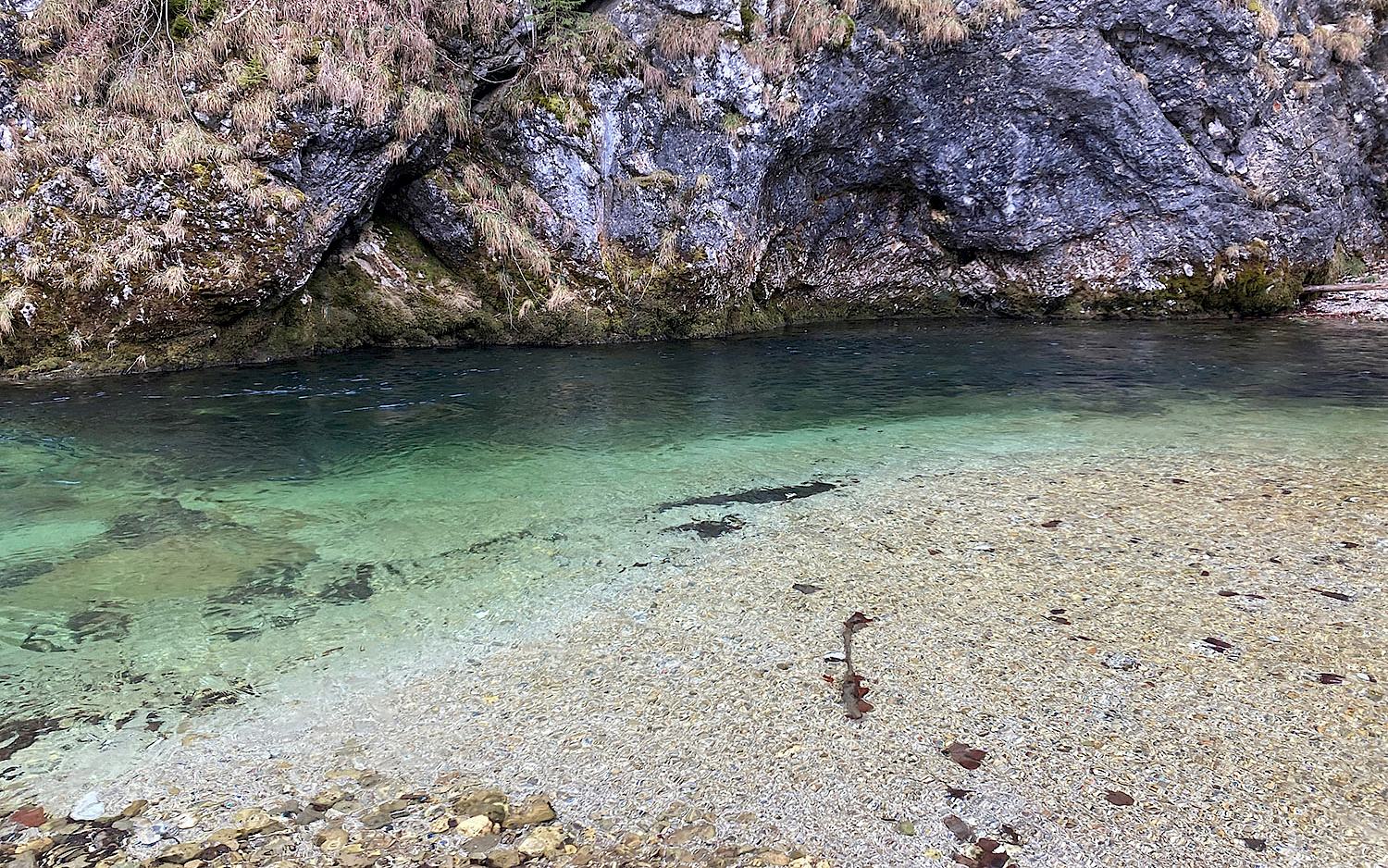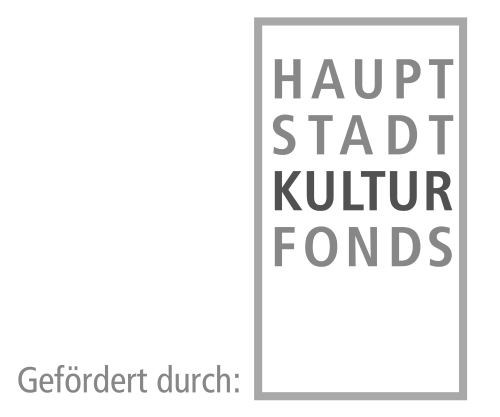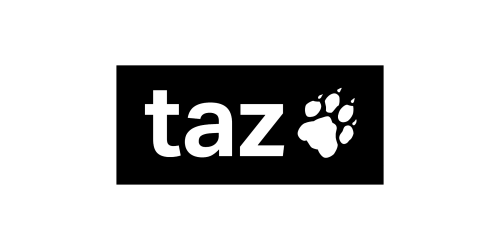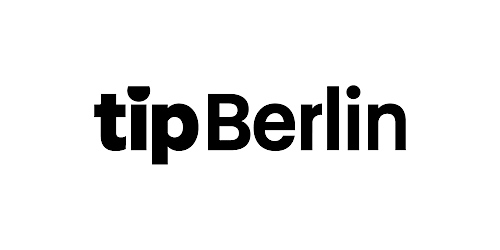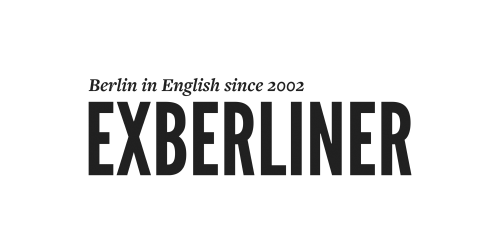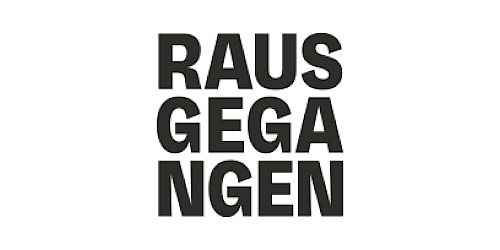Breathing Rivers: The River Talks
Dialogue Format
Talk Festival
Dates
Fr 17:00h with Seba Calfuqueo
Sa 16:00h with Uýra Sodoma
Su 16:00 – 17:30h Bootstour mit Amanda Piña, Camila Nobrega und Kristiane Fehrs
Ticket Prices
Free Admission, without registration.
→ „Breathing Rivers“-Festival Ticket: 26 Euros, discount 20 Euros
The festival ticket is valid for all events on the "Breathing Rivers" weekend, the days and times can be freely combined.
Ticket Prices
Free Admission, without registration.
→ „Breathing Rivers“-Festival Ticket: 26 Euros, discount 20 Euros
The festival ticket is valid for all events on the "Breathing Rivers" weekend, the days and times can be freely combined.
Ticket Prices
Admission free, with registration
As the available places are limited, we ask for registration via our website for the boat tour on 23 July.
The boat tour starts and ends at Radialsystem's landing stage. Access to the landing stage is not barrier-free. If you have any questions, please contact us at 030 288 788 588 or ticket@radialsystem.de.
→ „Breathing Rivers“-Festival Ticket: 26 Euros, discount 20 Euros
The festival ticket is valid for all events on the "Breathing Rivers" weekend, the days and times can be freely combined.
„What have we learned from your wisdom, river, from your ancestral knowledge as a body of water, as a cloud, as condensation and evaporation from lakes and oceans, as rain and absorption, what do we know of your conversations with plants and minerals, with ice, melting to become you? Who are you, river, how can we know you?“ – Amanda Piña
Western science has always understood rivers only in terms of their importance to humans. We have learned to rectify them, to control them, to use them for water supply, for mining, for energy creation. But what do we know about rivers themselves, about their relationships with other beings such as mountains, plants, fungi, animals and insects, minerals and underground flows. What do we know about them as beings that sustain us an enable possible futures. Water is Future.
‘The River Talks’ make up the discursive foundation of the festival ‘Breathing Rivers’, bringing together experts with scientific, artistic, local and indigenous knowledge in a series of polyphonic talks. They address the future of Berlin's water supply in the context of climate change, and likewise explore the role of rivers as living bodies/beings actively involved in the (re)production of water. The format – conceptualised by Amanda Piña and curated together with Matthias Mohr – tests a possible ecology of knowledge forms in which different systems – Western science, art, local knowledge, practical experience, indigenous knowledge – can enter into dialogue with one another, without the usual hierarchies between them.
‘The River Talks’ takes on a geopolitical and deeply ecological perspective to engage in a critical consideration of the material and symbolic impact of bodies of water. Thus, the desire to learn from rivers fosters ways of overcoming the modern/colonial rift between humans and nature. With contributions from anthropologists, glaciologists, climate change researchers, water scientists, indigenous experts and artists, a resonant space is created for collective action and reflection across national boundaries promoting a planetary consciousness of the interdependence of all living systems on earth.
„Breathing Rivers“-Festival
Located on the Spree River, Radialsystem was originally one of Berlin's first pumping stations, diverting wastewater from the rapidly growing city in the late 19th century. As part of the summer festival “Breathing Rivers,” today's Radialsystem explores our relationship to life and water from 20–23 July 2023 with works by choreographers Amanda Piña, Lina Gómez and Luísa Saraiva. “Breathing Rivers” aims to open spaces of experience in which we collectively remember the continuity of all that is living, which has experienced ruptures through the thought and action of European modernity. Disruptions between human and nature, body and mind, or through cleaving categorizations such as gender and race, behind which exploitation, violence and injustice find their justification. A re-consideration of the inseparable embeddedness of the human being in a larger context begins here with the body as a place of experience and knowledge production. Instead of a notion of a universality of knowledge, Breathing Rivers proposes a multiplicity of possibilities of knowledge production that emerges with and from the reality of differently situated bodies.
Cast
Concept
Amanda Piña
Curation
Amanda Piña
Matthias Mohr
Panelists (Fri 21 07)
Seba Calfuqueo
Panelists (Sat 22 07)
Uýra Sodoma
Concept Boat Tour (23 07)
Amanda Piña
Panelists Boat Tour (Sun 23 07)
Camila Nobrega
Kristiane Fehrs
Dramaturgy Boat Tour (Sun 23 07)
Cecilia Vallejos
Biographien
Amanda Piña is a Mexican-Chilean-Austrian artist. Her work is concerned with the decolonisation of art, focusing on the political and social power of movement. Since 2014, she has been developing her long-term project “Endangered Human Movements”, focusing on traditional dances and human movement practices which have existed for centuries but are today in danger of disappearing. As part of this project, she has developed a series of performances, installations, workshops, lectures, films and publications.
Visual artist and art mediator Uýra Sodoma, (Manaus, AM) is an indigenous woman in the diaspora context, two spirits (trans) and a human rights activist. Uýra Sodoma has a degree in biology and a master's degree in ecology of the Amazon. Through art, Uýra Sodoma creates images that contrast different natures: that of living in a state of freedom and that of violence against biodiversity and vulnerable human groups. In exhibitions in Brazil and around the world, Uýra Sodoma has explored, exposed, and initiated the debate about colonial annihilation and indigenous peoples' resistance in history and in the contemporary world. Presented at the 34th Bienal de SP and Bienal Manifesta (Kosovo), Uýra Sodoma also won the 2022 PIPA Prize and the 2022 SIM Prize for Racial Equality. Uýra Sodoma's works are part of the collections of institutions such as the Pinacoteca de São Paulo, the Castello di Rivoli (Italy) and the Los Angeles County Museum (USA).
Visual Artist and Curator at Espacio 218 Seba Calfuqueo (She/They, Santiago de Chile) are part of the Mapuche collective Rangiñtulewfü and Yene Revista. Their work recurs to their cultural heritage as a starting point in order to propose a critical reflection on the social, cultural, and political status of the Mapuche subject within contemporary Chilean society. Their work includes installation, ceramics, performance and video, with the aim of exploring the cultural similarities and differences between the crossing of indigenous and Western ways of thinking, as well as their stereotypes. Their goal is also to make the issues regarding feminism and queer theory visible. Their work is part of the Centre Pompidou (France) Museo MALBA (Argentina), Thyssen-Bornemisza Museum (Spain), KADIST collection (France), Museu de Arte Contemporânea do Rio Grande do Sul - MAC RS (Brazil), Museo Nacional de Bellas Artes (Chile) and MAC (Chile). They participated in the 34th Bienal de São Paulo, 12th Bienal de Mercosur and 22th Bienal Paiz. They are winner of the Municipalidad de Santiago Award in 2017 and Fundación FAVA Award in 2018. In 2021 they were awarded by Eyebeam’s Fractal Fellowships and in 2023 by Fundación Ama Amoedo’a FAARA. www.sebacalfuqueo.com
Camila Nobrega (She/ Her) is a Berlin based Brazilian transmedia journalist and researcher with focus on investigations about social-environmental conflicts and megaprojects from decolonial feminist and queer lenses, fostering transmedia formats that connect journalism, academia, art and documentary processes. As a PhD Candidate and lecturer at the Free University of Berlin, she works on an investigation about silenced transformations caused by mega hydropower dams mainly in different territories in Latin America. Camila Nobrega is founder of the project Beyond the Green: www.beyondthegreen.media
Kristiane Fehrs studied at the Institute of European Ethnology at Humboldt-Universität zu Berlin until 2023. As part of her studies, she worked on an ethnographic research project on the phenomenon of the 'brown Spree' and the interconnections between water and coal mining in Lusatia. Since April 2023, she has been a research assistant at the Junior Professorship for Micro-Sociology and Techno-Social Interaction and is developing research that focuses on the energy transition and the development of hydrogen infrastructures in Saxony. In her Bachelor's degree, she studied the interdisciplinary urban research programme 'Culture of the Metropolis' at HafenCity University in Hamburg.
Programme
Fri, 21 07, 5 pm – Studio C
„The River Talks“ with Seba Calfuqueo
Sat, 22 07, 4 pm – Studio C
„The River Talks“ with Uýra Sodoma
Sun, 23 07, 4 pm – Boat tour
The third and last edition of „The River Talks“ on Sunday, 23 July, will take place on a boat. The boat tour starts at Radialsystem's landing stage, where it also ends after about one and a half hours. The journey on the Spree begins with the artistic intervention "Breathing River" by and with Amanda Piña, followed by a conversation between her and the Berlin-based Brazilian transmedia journalist and researcher Camila Nobrega and the ethnographer working on (water) infrastructures Kristiane Fehrs.
As the available places are limited, we kindly ask you to register in advance via the registration link above.
Credits
„Breathing Rivers“ is an event of the Radialsystem, funded by the Hauptstadtkulturfonds and the Radial Stiftung.
Media partners: taz. die tageszeitung, tip Berlin, Exberliner and Rausgegangen.
„What have we learned from your wisdom, river, from your ancestral knowledge as a body of water, as a cloud, as condensation and evaporation from lakes and oceans, as rain and absorption, what do we know of your conversations with plants and minerals, with ice, melting to become you? Who are you, river, how can we know you?“ – Amanda Piña
Western science has always understood rivers only in terms of their importance to humans. We have learned to rectify them, to control them, to use them for water supply, for mining, for energy creation. But what do we know about rivers themselves, about their relationships with other beings such as mountains, plants, fungi, animals and insects, minerals and underground flows. What do we know about them as beings that sustain us an enable possible futures. Water is Future.
‘The River Talks’ make up the discursive foundation of the festival ‘Breathing Rivers’, bringing together experts with scientific, artistic, local and indigenous knowledge in a series of polyphonic talks. They address the future of Berlin's water supply in the context of climate change, and likewise explore the role of rivers as living bodies/beings actively involved in the (re)production of water. The format – conceptualised by Amanda Piña and curated together with Matthias Mohr – tests a possible ecology of knowledge forms in which different systems – Western science, art, local knowledge, practical experience, indigenous knowledge – can enter into dialogue with one another, without the usual hierarchies between them.
‘The River Talks’ takes on a geopolitical and deeply ecological perspective to engage in a critical consideration of the material and symbolic impact of bodies of water. Thus, the desire to learn from rivers fosters ways of overcoming the modern/colonial rift between humans and nature. With contributions from anthropologists, glaciologists, climate change researchers, water scientists, indigenous experts and artists, a resonant space is created for collective action and reflection across national boundaries promoting a planetary consciousness of the interdependence of all living systems on earth.
„Breathing Rivers“-Festival
Located on the Spree River, Radialsystem was originally one of Berlin's first pumping stations, diverting wastewater from the rapidly growing city in the late 19th century. As part of the summer festival “Breathing Rivers,” today's Radialsystem explores our relationship to life and water from 20–23 July 2023 with works by choreographers Amanda Piña, Lina Gómez and Luísa Saraiva. “Breathing Rivers” aims to open spaces of experience in which we collectively remember the continuity of all that is living, which has experienced ruptures through the thought and action of European modernity. Disruptions between human and nature, body and mind, or through cleaving categorizations such as gender and race, behind which exploitation, violence and injustice find their justification. A re-consideration of the inseparable embeddedness of the human being in a larger context begins here with the body as a place of experience and knowledge production. Instead of a notion of a universality of knowledge, Breathing Rivers proposes a multiplicity of possibilities of knowledge production that emerges with and from the reality of differently situated bodies.
Cast
Concept
Amanda Piña
Curation
Amanda Piña
Matthias Mohr
Panelists (Fri 21 07)
Seba Calfuqueo
Panelists (Sat 22 07)
Uýra Sodoma
Concept Boat Tour (23 07)
Amanda Piña
Panelists Boat Tour (Sun 23 07)
Camila Nobrega
Kristiane Fehrs
Dramaturgy Boat Tour (Sun 23 07)
Cecilia Vallejos
Biographies
Amanda Piña is a Mexican-Chilean-Austrian artist. Her work is concerned with the decolonisation of art, focusing on the political and social power of movement. Since 2014, she has been developing her long-term project “Endangered Human Movements”, focusing on traditional dances and human movement practices which have existed for centuries but are today in danger of disappearing. As part of this project, she has developed a series of performances, installations, workshops, lectures, films and publications.
Visual artist and art mediator Uýra Sodoma, (Manaus, AM) is an indigenous woman in the diaspora context, two spirits (trans) and a human rights activist. Uýra Sodoma has a degree in biology and a master's degree in ecology of the Amazon. Through art, Uýra Sodoma creates images that contrast different natures: that of living in a state of freedom and that of violence against biodiversity and vulnerable human groups. In exhibitions in Brazil and around the world, Uýra Sodoma has explored, exposed, and initiated the debate about colonial annihilation and indigenous peoples' resistance in history and in the contemporary world. Presented at the 34th Bienal de SP and Bienal Manifesta (Kosovo), Uýra Sodoma also won the 2022 PIPA Prize and the 2022 SIM Prize for Racial Equality. Uýra Sodoma's works are part of the collections of institutions such as the Pinacoteca de São Paulo, the Castello di Rivoli (Italy) and the Los Angeles County Museum (USA).
Visual Artist and Curator at Espacio 218 Seba Calfuqueo (She/They, Santiago de Chile) are part of the Mapuche collective Rangiñtulewfü and Yene Revista. Their work recurs to their cultural heritage as a starting point in order to propose a critical reflection on the social, cultural, and political status of the Mapuche subject within contemporary Chilean society. Their work includes installation, ceramics, performance and video, with the aim of exploring the cultural similarities and differences between the crossing of indigenous and Western ways of thinking, as well as their stereotypes. Their goal is also to make the issues regarding feminism and queer theory visible. Their work is part of the Centre Pompidou (France) Museo MALBA (Argentina), Thyssen-Bornemisza Museum (Spain), KADIST collection (France), Museu de Arte Contemporânea do Rio Grande do Sul - MAC RS (Brazil), Museo Nacional de Bellas Artes (Chile) and MAC (Chile). They participated in the 34th Bienal de São Paulo, 12th Bienal de Mercosur and 22th Bienal Paiz. They are winner of the Municipalidad de Santiago Award in 2017 and Fundación FAVA Award in 2018. In 2021 they were awarded by Eyebeam’s Fractal Fellowships and in 2023 by Fundación Ama Amoedo’a FAARA. www.sebacalfuqueo.com
Camila Nobrega (She/ Her) is a Berlin based Brazilian transmedia journalist and researcher with focus on investigations about social-environmental conflicts and megaprojects from decolonial feminist and queer lenses, fostering transmedia formats that connect journalism, academia, art and documentary processes. As a PhD Candidate and lecturer at the Free University of Berlin, she works on an investigation about silenced transformations caused by mega hydropower dams mainly in different territories in Latin America. Camila Nobrega is founder of the project Beyond the Green: www.beyondthegreen.media
Kristiane Fehrs studied at the Institute of European Ethnology at Humboldt-Universität zu Berlin until 2023. As part of her studies, she worked on an ethnographic research project on the phenomenon of the 'brown Spree' and the interconnections between water and coal mining in Lusatia. Since April 2023, she has been a research assistant at the Junior Professorship for Micro-Sociology and Techno-Social Interaction and is developing research that focuses on the energy transition and the development of hydrogen infrastructures in Saxony. In her Bachelor's degree, she studied the interdisciplinary urban research programme 'Culture of the Metropolis' at HafenCity University in Hamburg.
Related

